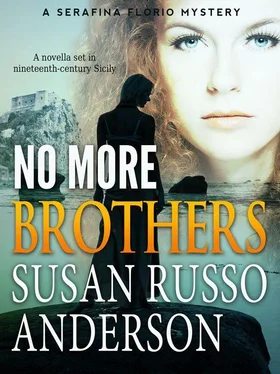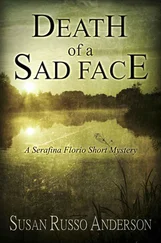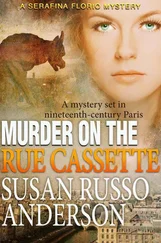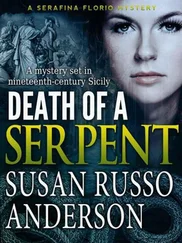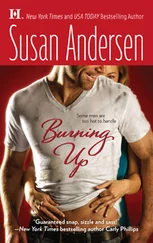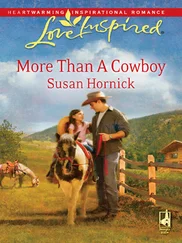Susan Anderson - No More Brothers
Здесь есть возможность читать онлайн «Susan Anderson - No More Brothers» весь текст электронной книги совершенно бесплатно (целиком полную версию без сокращений). В некоторых случаях можно слушать аудио, скачать через торрент в формате fb2 и присутствует краткое содержание. Год выпуска: 2012, Жанр: Исторический детектив, на английском языке. Описание произведения, (предисловие) а так же отзывы посетителей доступны на портале библиотеки ЛибКат.
- Название:No More Brothers
- Автор:
- Жанр:
- Год:2012
- ISBN:нет данных
- Рейтинг книги:3 / 5. Голосов: 1
-
Избранное:Добавить в избранное
- Отзывы:
-
Ваша оценка:
- 60
- 1
- 2
- 3
- 4
- 5
No More Brothers: краткое содержание, описание и аннотация
Предлагаем к чтению аннотацию, описание, краткое содержание или предисловие (зависит от того, что написал сам автор книги «No More Brothers»). Если вы не нашли необходимую информацию о книге — напишите в комментариях, мы постараемся отыскать её.
No More Brothers — читать онлайн бесплатно полную книгу (весь текст) целиком
Ниже представлен текст книги, разбитый по страницам. Система сохранения места последней прочитанной страницы, позволяет с удобством читать онлайн бесплатно книгу «No More Brothers», без необходимости каждый раз заново искать на чём Вы остановились. Поставьте закладку, и сможете в любой момент перейти на страницу, на которой закончили чтение.
Интервал:
Закладка:
He shrugged. “Long enough to have a drink, but you see it was-when was it-end of last week? Weather warming, as I recall.” He paused long enough to smack his gums. “Not crowded. Had to have been recent.”
Although she felt her temples throb, Serafina kept very still. “Can you recall what day of the week it was?”
He cocked his head. “Let me think on it a while.” He quieted for a long time until he nodded. Imperceptible at first, his movement grew distinct, a definite nod. “Saturday, Saturday a week. Definite, that.” He pointed to his head and grinned. “Yep, that’s a definite. Saturday a week. First the shoemaker came in.”
“Alone?”
He shook his head. “No, he came in with someone. Now let me think, hold on, he came in with a queer bloke, a faded soldier, as you might say. Might have seen that one before, but after a while, they all look alike.”
Serafina brought out her notebook and wrote. “A faded soldier. Can you describe him?”
“Not short, not tall. Thick. Kept a rusty rifle by his side, like all the rest.”
“Did they spend the evening here?”
“Hold on now.” Boffo scratched his head. “Not so’s I recall. First the soldier comes in, then the shoemaker. Must have planned to meet here, you see. They sat at a table in the corner away from the bar behind the pillar, although they had their pick of seats. Not crowded, that’s how I remember it. Then a throng comes in. Lost track of the pair, you might say. Later on, Ugo rolls in, seats himself at the brother’s table. But I think, yes, I think the soldier had left by then. Or maybe not. By that time, quite a crowd. Yes, definitely this past Saturday. A rollicky gal, this bar, and she still draws a mob on Saturdays.”
“So you don’t know how long they stayed, but they were together, first the shoemaker and the soldier and after the soldier left, Ugo came in and drank with his brother.”
Boffo’s cheeks puffed in and out. “That’s about it.”
Serafina waited a bit, then stuffed the notebook into her reticule. “Did the brothers leave together?”
“Don’t remember. Just remember the handshakes. And later, that same evening must have been, Rodolfo has a bottle with him. Wants me to fill it with the house wine. I did. Said I could add it to his bill. Old customer, you know.”
“And now he has a high tab?”
He shook his head. “Nope. Yesterday, he paid up.”
CHAPTER TWENTY-SIX
Serafina sat in her mother’s room on the third floor and wrote down what she’d remembered of her failed meeting with Abatti, her conversations with Rodolfo and his wife, weighing their words and mood, mentally sifting through and jotting down the physical evidence found at the scene of the crime and in Ugo’s kitchen.
She wrestled her mind into the straightjacket of logic and fact, only to give up and let it graze freely on possibilities and failed stratagems. Thumbing through her notes, she considered what she’d learned so far-precious little for all the time she’d spent, certainly not enough to nail Rodolfo to his brother’s murder.
She chewed on the inside of her cheek, realizing she was not as objective as she liked to think: she had begun the investigation of the shoemaker with her mind already convinced of his guilt. Closing her eyes and leaning back, she emptied her head, letting each damaged thought fly away like wounded birds out a window.
She dozed, dreamed a little. Refreshed, she began with what she knew.
From her interview with Rodolfo shortly after she found Ugo’s body on the beach, she learned that the shoemaker’s motives for killing his brother were strong. Like most of the other shopkeepers, including her own son, he was having difficulty making ends meet. Sales dwindled while expenses grew. By his own admission, Rodolfo had to share profits from the store with his brother. With his brother dead, all the profits were his to keep.
While he and his family were well-clothed and seemed well fed, Rodolfo had a tab at Boffo’s. Perhaps he had other debts. If only she had some concrete evidence linking him to his brother’s murder, perhaps the courts would issue a mandate to examine Rodolfo’s financial records and she’d find deeper arrears, but for now, she could only assume his monetary situation had worsened.
She considered Rodolfo’s means at hand-the soldier, the poison.
Boffo claimed he’d seen Rodolfo in his bar with “a faded soldier” on at least one occasion shortly before Ugo’s death. There were many former soldiers in and around the piazza, thousands in Sicily. Was Boffo’s soldier Abatti? And if asked, would Boffo identify Abatti as the soldier he’d seen with Rodolfo?
The barkeep also said he’d seen the Rodolfo and Ugo together. Recent and unusual behavior, according to him. Did the shoemaker affect a reconciliation with the brother, bring a bottle to his brother’s home, and slip a small quantity of arsenic into Ugo’s glass when he wasn’t looking?
Her search for a record that Rodolfo had purchased arsenic was unsuccessful. If she found it, what would it prove? Another indirect piece of evidence. And if she were honest with herself, that’s all she had-bits and pieces, hearsay. Was it enough to bring Rodolfo in for questioning?
Not quite yet. There was some fact she missed or had forgotten-something she should have seen. It toyed with her memory, a chimera enticing her. Searching for truth, she concluded, was a bottomless quest.
And anyway, how could she be so foolish spending all this time chasing after ghosts when her children needed her and there were other murders to solve, other babies to deliver? If she were to take what she knew so far back to the commissioner, would he laugh at her? And why was she bothering with it? Because of her stubbornness? Because in her heart, she believed the shoemaker was guilty of fratricide and she must serve justice.
How would she feel if she gave up now? She couldn’t live with herself. And she felt sure there was a piece she was missing when it came to Rodolfo’s acquaintance with Abatti, an acquaintance that Abatti, because of his pig-headed loyalty, denied.
There was a knock on the door and Assunta’s voice called her to the noon meal. She stopped. How long, she wondered, had she been pacing back and forth?
• • •
After dinner, she went again to her mother’s room, swiping her eyes along the shelves in search of a good book. Returning to the chair with A Tale of Two Cities , she read as far as the first sentence when she smelled lavender and orange peel. The cloud transporting her mother evaporated and the specter appeared before her in full bloom.
“You’re sitting in my spot!”
Forcing Serafina to stand, her mother settled herself in her favorite reading chair. In front of her was the four poster where Maddalena had battled cholera two years ago and where, before succumbing to the disease, she had told her daughter the secret of Tigro’s birth, a millstone she’d carried by herself for over thirty years. But tonight her mother’s face had the freshness of youth. Her ginger curls sparkled and she wore her green velvet gown.
“You startled me!”
“Dawdling as usual, I see, and circling the same worn ground. Get a move on, girl: the answer’s before you.”
“And Ugo’s body will be buried before the week’s out. I mustn’t let that happen.”
“Ugo’s body has told you all it needs to tell, a tale of treachery and revenge, of hatred between brothers, a lust for gold that blights our land. Trust yourself, but think in different ways. You need new eyes.”
Serafina crossed her arms and stomped a foot on the floor as her mother disappeared. “Oh, you are impossible! Impossible! Why won’t you help?” But as she asked the question, Serafina snapped her fingers and ran down the stairs, her doubt dissipated.
Читать дальшеИнтервал:
Закладка:
Похожие книги на «No More Brothers»
Представляем Вашему вниманию похожие книги на «No More Brothers» списком для выбора. Мы отобрали схожую по названию и смыслу литературу в надежде предоставить читателям больше вариантов отыскать новые, интересные, ещё непрочитанные произведения.
Обсуждение, отзывы о книге «No More Brothers» и просто собственные мнения читателей. Оставьте ваши комментарии, напишите, что Вы думаете о произведении, его смысле или главных героях. Укажите что конкретно понравилось, а что нет, и почему Вы так считаете.
